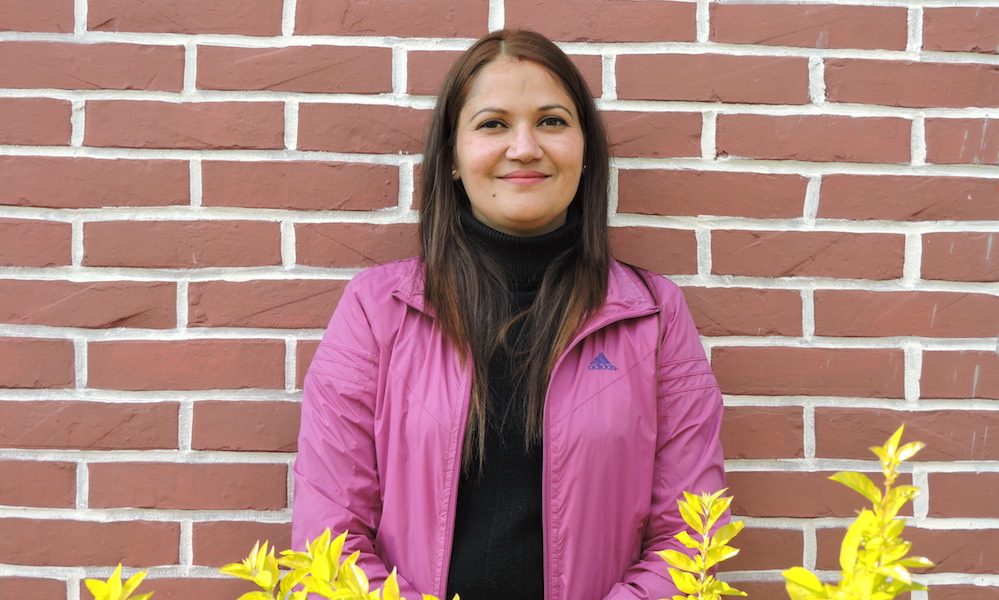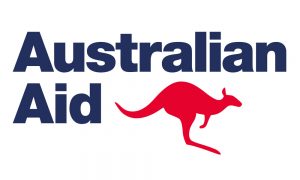INF’s commitment to gender equality both within the organisation and throughout its work with some of Nepal’s most marginalised women has seen the creation of a new role – INF’s Gender Officer.
Cherry Mawson, INF Australia’s Programs Officer, chats with Shakuntala Subedi who recently took up the new position.
What will you do as INF’s Gender Officer?
I will strengthen pathways for gender equality within the communities we work and within INF. I will generate new ideas and approaches for gender-related activities; support the management, monitoring and delivery of programs that bring gender equality to our work; liaise with staff, government and other organisations to help them consider gender issues; and support the *POWER project, among other things!
Why is it important to pay attention to gender?
‘Gender’ refers to the learned behaviour that society considers appropriate for men and women – a set of rules which often benefits men and keeps women in their place.
Gender is an important consideration in development. It is a way of looking at how social norms and power structures impact on the lives and opportunities available to different groups of men and women. Compared with men, women control fewer political and economic resources, including land, employment and traditional positions of authority at Nepal. They face unequal power relations and barriers due to a patriarchal society. Women are frequently subjected to rape and domestic abuse, and young women risk being trafficked. There are also many superstitions and taboos related to caste and menstruation leading to discrimination towards women.
There has been drastic positive change in the role and status of women in Nepal, but there is still a lot more to be done. Equality for women is an important pillar for economic empowerment and sustainable development.
Why are you passionate about gender equality?
I’m from and have worked in the Karnali Province, the least developed province in Nepal, so I‘m very aware of development issues in Nepal. Having seen the condition of women first-hand I’ve always wanted to advocate for them. Gender inequality is deeply rooted and some people are comfortable not to change, especially those who benefit from it. As a result, I have always aspired to work towards equality for women and children in Nepal. It really bothers me that we still have so far to go, but the positive changes we’re now seeing in gender equality encourage me to keep going.
Is there someone who inspires you and your work?
For me, my brother is the person who inspires me to work in this field. He is the most influential person in my life. He has supported me, cheered me on, given me unbiased advice, and has simply been there for me my entire journey. His name is Santosh Sharma.
What challenges do you see ahead?
There are a number of challenges, including the systemic barriers created by a traditionally patriarchal society; gender equality being considered too provocative; structural inequality [especially at the decision-making level]; and gender bias within the workplace.
What is INF doing to promote gender equality?
In addition to appointing me as the Gender Officer, INF is producing a gender policy to promote gender equality within INF and in its work at the community level.
To further promote women’s leadership within INF, I am keen to see more women recruited in leadership positions and in field offices; formalised mentorship and training opportunities; and the establishment of a strong women’s network in the organisation.
What progress do you hope to see in five years’ time?
I hope we will have a more gender- friendly workplace, with more women in key decision-making positions. I also hope we effectively implement our Gender and Social Inclusion policy, and that gender is thought about throughout the whole organisation.
*The POWER Project
The *POWER project focuses on increasing women’s leadership and participation in local organisations and governance structures, to advance the status and rights of women. It hopes to contribute towards achieving gender equality within INF and the communities it works with. It will:
- Work with existing self-help groups and co-operatives in communities, as well as community organisations, to conduct campaigns for gender equality,
including on issues of violence against women - Train a network of women from marginalised communities as Human Rights Defenders, to champion women’s rights
- Work with self-help groups to advocate to local government for increased access to services for women, and to seek out government resources
- Train newly elected local governments to consider gender when planning and budgeting local resources
- Improve gender equality within INF, for example in its policies and female staff representation
INF is excited to be working on this project in collaboration with three other Christian organisations in Nepal: Lutheran World Fellowship Nepal, Caritas, and the Adventist Development and Relief Agency [ADRA]. In partnership these organisations will be able to share learning, resources and make a greater impact.
The POWER project receives support from the Australian Government through the Australian NGO Cooperation Programme [ANCP].
This article is featured in the upcoming edition of Today in Nepal, our tri-annual magazine. If you’re in Australia, you can sign up to receive Today in Nepal here.




